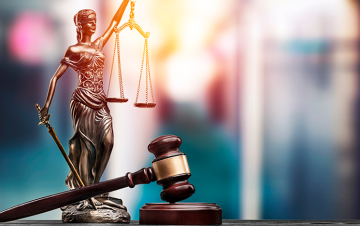Lawyer with 15 years of legal experience, specialization: family and civil law, inheritance, contract law, criminal cases, administrative cases, cases involving foreigners, migration law
The modern legal system is increasingly turning to alternative dispute resolution methods, such as mediation, as a means of resolving conflicts outside of the court system. These methods provide the parties to a dispute with the opportunity to resolve conflict situations independently through joint discussion and agreement on compromise solutions. An important advantage of these methods is that they help preserve the relationship between the parties by resolving the dispute without a public trial.
Mediation is a process of confidential and voluntary dispute resolution with the help of a neutral mediator who assists the parties in reaching mutually beneficial agreements. In the mediation process, the parties have the opportunity to freely express their views and interests, and the mediator helps to find a compromise and reach an agreement. This method is actively used in cases where the key is to preserve the relationship between the parties, such as family disputes, conflicts at work or in commercial relations.
In addition to mediation, there are other alternative dispute resolution methods, such as arbitration, consultation, negotiation and administrative procedures. Arbitration is a procedure for resolving a dispute with the help of an independent third party (arbitrator) whose decision is binding on the parties. Consultations and negotiations can take place both before and during the trial, facilitating the parties to reach an agreement.
The role of a lawyer in alternative dispute resolution is to provide legal support and advice to the parties involved in such procedures. The lawyer acts as an intermediary between the parties and helps them understand the legal aspects of the dispute, into account their rights and interests, performs: protection of dignitytake, legal proceedings, representation, analysis, and negotiate mutually beneficial terms of the agreement. He or she represents the client during negotiations and assists in preparing the necessary documents and concluding the transaction.
An important advantage of alternative dispute resolution methods is their efficiency and cost. They allow for quick and efficient resolution of conflicts without the need for lengthy and costly court proceedings. In addition, they provide the parties with the opportunity to actively participate in the resolution of their dispute and find mutually beneficial solutions.
Mediation and other alternative dispute resolution methods also contribute to the decongestion of the judiciary and reduce the workload of the court system. By resolving disputes out of court, lengthy and costly court proceedings can be avoided, which contributes to more efficient use of resources and speeds up the conflict resolution process.
In addition, the use of alternative dispute resolution methods contributes to building a peaceful and harmonious society where conflicts are resolved through dialogue and mutual understanding rather than confrontation and litigation. This approach helps to strengthen social order and ensure stability in society.
In today's legal environment, mediation and alternative dispute resolution methods are becoming increasingly popular and important tools in legal practice. They contribute to the efficient and humane resolution of disputes, helping to preserve relations between the parties and increase trust in the legal system.




































